Organizer & Chair
#IFM2023 VIRTUAL CONFERENCE
CARE COLLABORATION CRAFT
Hosted by Toronto Metropolitan University (Canada), The University of Texas at Dallas (USA), Leeds Trinity University (UK), and Ithaca College (USA), June 7-9, 2023
The annual Interactive Film and Media Conference invites abstracts that explore, interrogate, interweave, unravel, and reinvent the dynamic relationships between care, collaboration, and craft across new media platforms, practices, and theories. This nexus of care, collaboration, and craft has emerged as a fertile ground for thinking through the crucial yet unresolved work of combatting polarization with multiple voices, plural practices, and new ways of working together to invent shared languages and ideas. The conference invites participants to think about these three axes–care, collaboration, craft–whose definitions and relationships are not fixed, but fluid and adaptive.
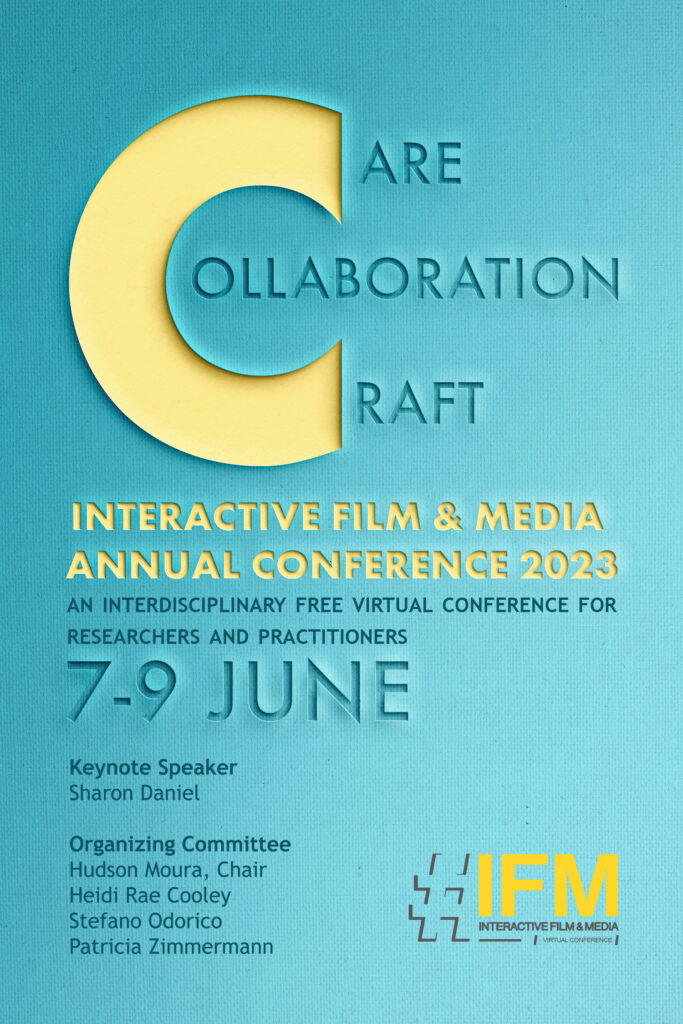
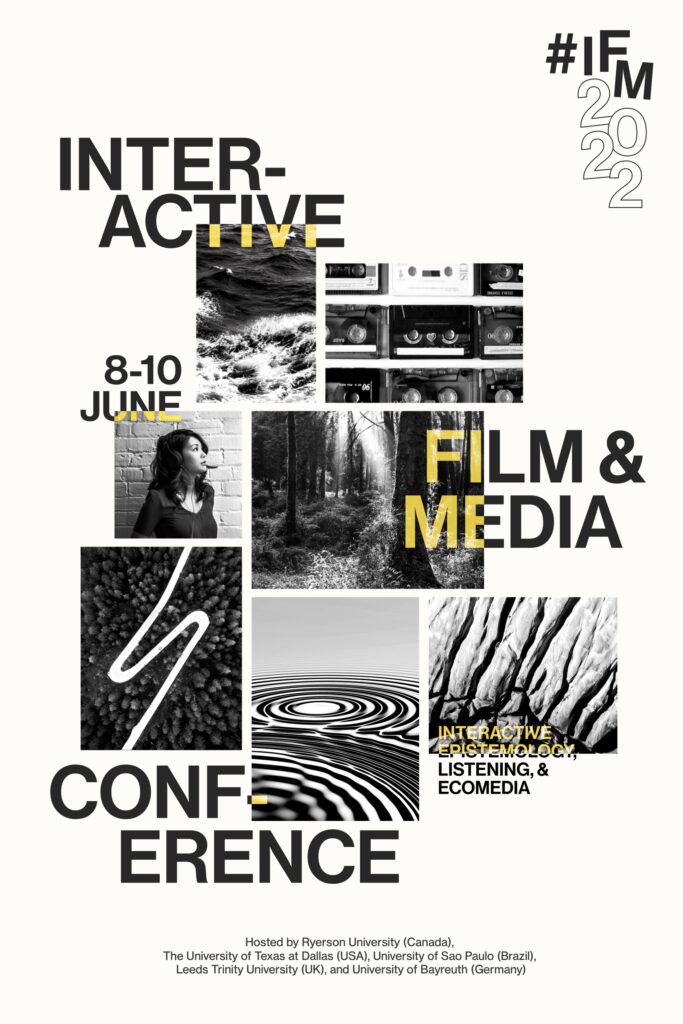
#IFM2022 Virtual Conference: Interactive Epistemology, Listening, And Ecomedia
Hosted by Ryerson University, The University of Texas at Dallas, University of Sao Paulo, Leeds Trinity University, and the University of Bayreuth.
What are the interactive film and media epistemological contributions to contemporary art and media fields? How do/might interactive technologies, practices, experiences invite, or indeed, demand revised modes of listening? How might taking seriously the work of listening (as a form of attending to) open onto more generous ways of knowing, practicing, and being in an era of socio-ecological crisis? the 4th Interactive Film and Media International Conference invites participants to explore the definitions, terms, and practices to frame the conditions of interaction and interactivity in three strands: Epistemology, Listening, and Ecomedia.
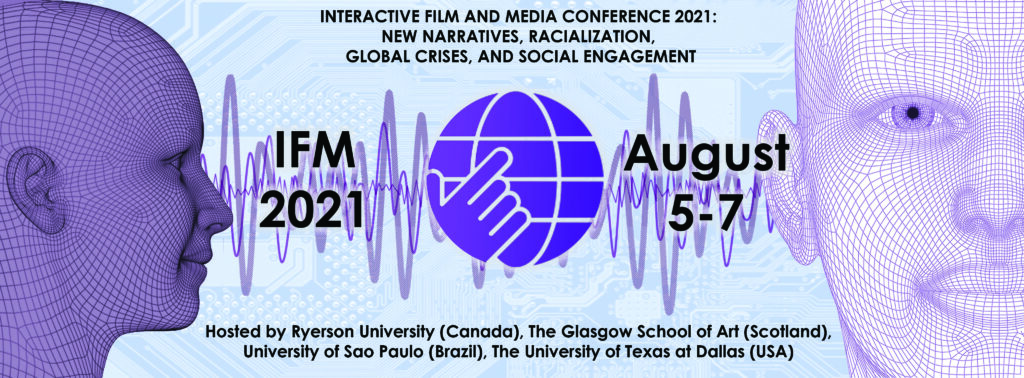
Interactive Film and Media Conference 2021: New Narratives, Racialization, Global Crises, and Social Engagement
Hosted by Ryerson University, The Glasgow Art School, University of Sao Paulo, and The University of Texas at Dallas
The conference will convene entirely online and will be jointly hosted by several universities. The organizers believe that now is the right moment to evaluate the saturation and fragmentation of media during the pandemic experience of the last year, as well as to discuss new online media interactivities in a virtual environment.
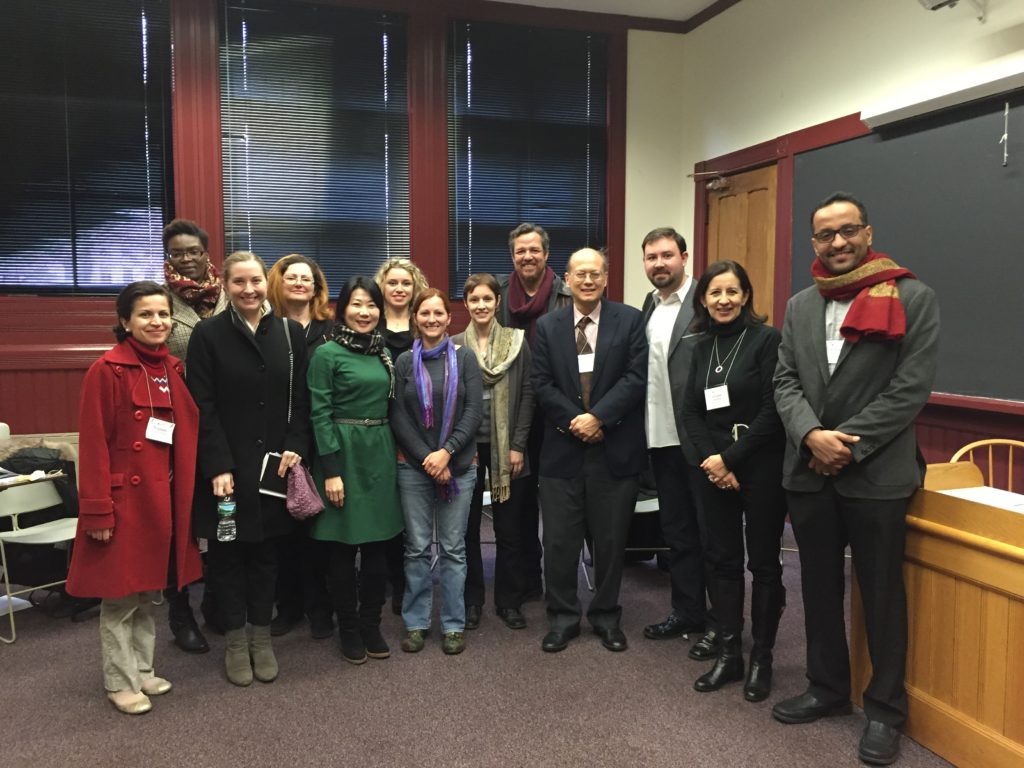
Seminar Writing Diaspora: Myth, History and Reinvention of the Self
ACLA, Harvard University
How much (or, what) influence does exile exert in literary writing? Accounts of exile and diaspora show that the attempt to relate the experience of displacement leads to a renewal of narrative. The experience of displacement dictates writers and artists’ conceptions of the world and sense of belonging. How does this ‘duality’ of living between two or more cultures affect relationships and perceptions of the Other and the Self?
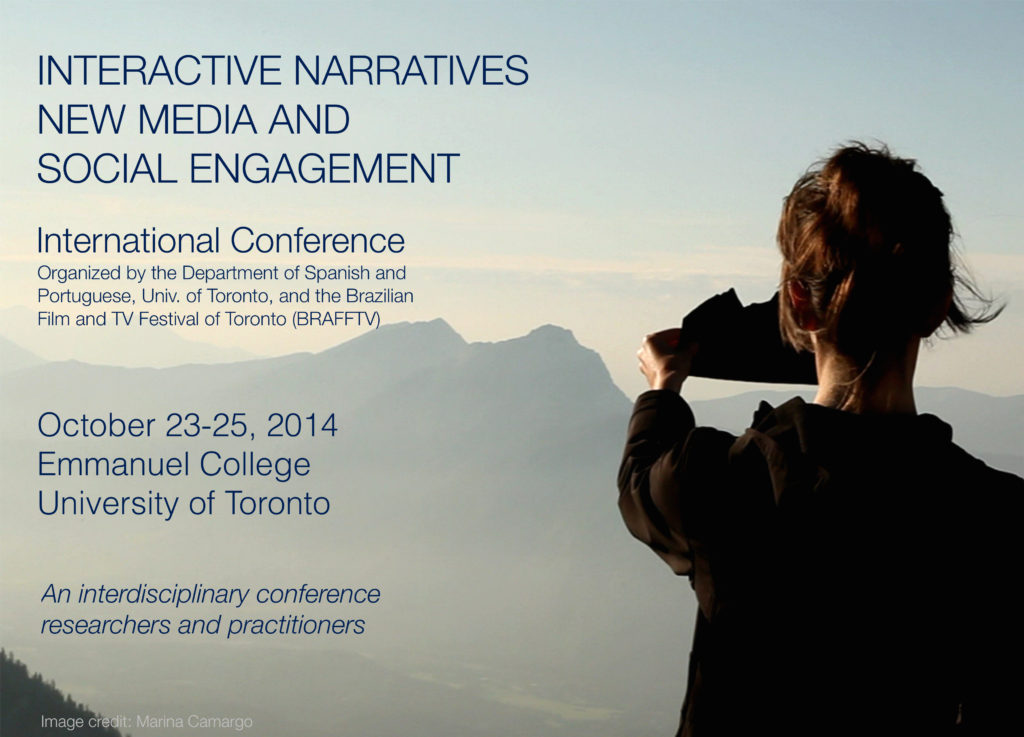
Interactive Narratives, New Media and Social Engagement International Conference
Victoria College, University of Toronto
An interdisciplinary conference for researchers and practitioners. In the evolution of narrative practices from text-based literature to the advent of the digital revolution as storytelling moves from literacy to so-called post-literacy. The prevalence of new interactive digital narrative in all areas from games, to literature, to films, to video art has resulted in new forms of storytelling and, accordingly, provoked new practices of reading that transforms readers/viewers into active collaborators. Physical public space is increasingly being substituted or augmented by virtual space through digital screens (e.g. video, film, computer). What effect do these new developments have on social space, seen here as encompassing both physical public spaces (streets, hotels, coffee shops) as well as virtual space (YouTube, Vine, Facebook, Twitter, Tumblr, and Instagram)? How do these novel practices effect previously clearly demarcated frontiers between the public and the private? Throughout the world, from Brazil to Turkey to Canada, we have recently witness the influence of social media on political participation. How have these new platforms engendered innovative forms of expression?
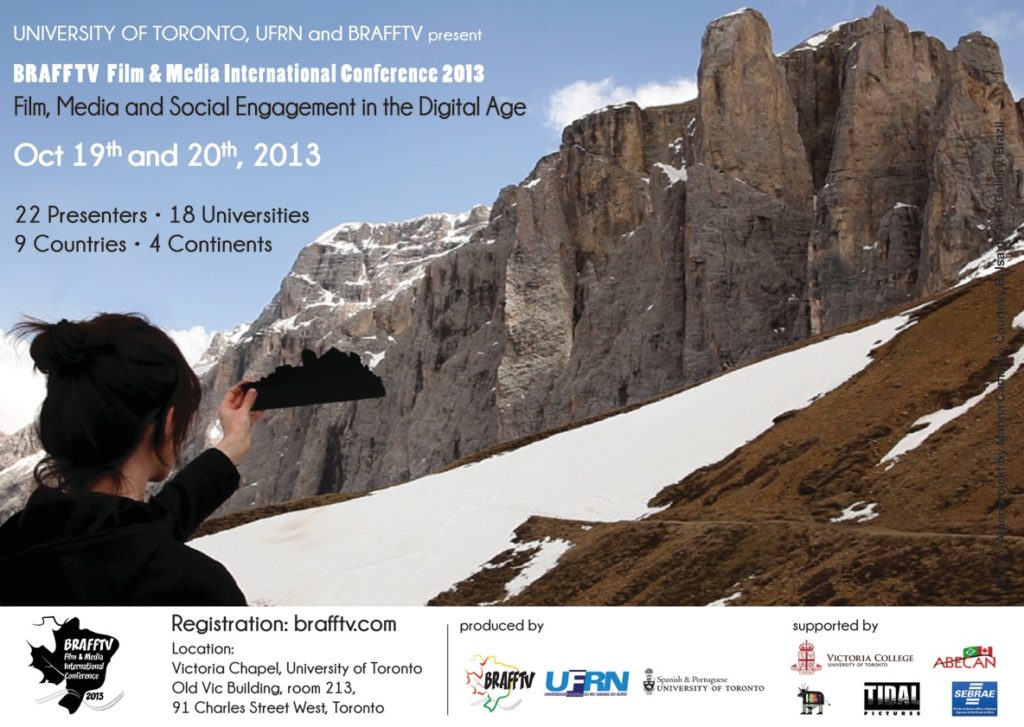
Film, Media and Social Engagement in the Digital Age
Victoria College, University of Toronto
The conference discussions will be focused on film, media and social engagement in the digital age. The goal is to propose a broad debate, emphasizing the need to evaluate the increasing use of digital screens in contemporary society and how people and countries are dealing with their own image, identity and digital cultural space artistically, socially and politically. Film and media practitioners and educators have been expanding the use of digital media through new experiences with unusual and innovative technical and artistic approaches. At the same time, researchers and academics are questioning and analyzing these new practices, which are increasingly dominating global society. The way in which people and countries are dealing with the advent of new technologies reflects social issues and makes us deepen the debate on matters such as our own identity and the state of research conducted in these countries. How are countries acting in face of these new phenomena? Does globalization standardize the use of new media? How are the countries reacting?